|
Orders for these information packed books with how-to hunting tips, vivid field/trophy photos can be made by emailing [email protected] or calling/text to 1-807-627-6989. I further invite visits to web: www.venturenorthoutdoors.com . This site will shortly have a PayPal service for fast and secure orders.
1 Comment
9/16/2021 0 Comments Ontario Bait Management StrategySeptember 14, 2021 Greetings, The purpose of this mailing is to inform you of changes related to the use and movement of baitfish and leeches in Ontario that will come into effect on January 1, 2022. As we communicated last summer, Ontario’s Sustainable Bait Management Strategy (Bait Strategy) was finalized and posted as a decision notice on the Environmental Registry of Ontario (ERO# 019-0518) in July 2020. As part of our implementation of the strategy, the Ministry of Northern Development, Mines, Natural Resources and Forestry (NDMNRF) recently amended the Fish Licensing Regulation (O. Reg. 664/98) under the Fish and Wildlife Conservation Act, 1997 to implement regulations associated with the movement of bait in Ontario (Section 3 of the Bait Strategy). The new regulations include: Establishment of four Bait Management Zones (BMZ)
Receipts
If you have any questions related to the implementation of the Sustainable Bait Management Strategy, please feel free to reach out to Dave Hintz ([email protected]). Thanks, Christie Curley Director, Fish & Wildlife Policy Branch Christie Curley (she/her) | Director | Fish & Wildlife Policy Branch | Policy Division | Ministry of Northern Development, Mines, Natural Resources and Forestry | 300 Water St, 5th Floor North Tower, Peterborough, Ontario, K9J 8M5 | ph: 705-875-8236 |
Overview In 2021, the moose tag draw will be replaced by a points-based tag allocation process to distribute moose tags among resident hunters.
The tag allocation process will begin in April 2021 and will consist of a primary allocation stage and a second chance allocation stage. All hunters will apply as individuals. There are no group applications. This new allocation process:
Benefits of the new moose tag allocation process Addresses concerns about fairness • All hunters will apply as individuals. There will be no group applications. • Hunters will be allocated most tags based on the number of points they have accumulated since 1993. • Initially, the hunters that have applied the most times since last receiving an adult tag through the draw or a tag transfer will have the most points and are more likely to be awarded their choice of tag. • If a hunter claims a tag awarded based on points, their points will reset to zero. • There will no longer be pools 1 and 2. • There will be no pooling of points among multiple hunters. Distributes all tag types to resident hunters • Ontario residents may apply for bull, cow/calf, or calf tags. Calf tags will no longer be issued with a moose licence. Learn more at Ontario.ca/moosereview. • Non-residents can only acquire their own tag to hunt moose by purchasing a hunt from a tourist outfitter. • Resident hunters can also acquire a tag or party hunt on a tag as registered guests of a tourist outfitter. • No hunter can be issued more than one tag per year. Allows hunters to purchase only the products they need • Hunters will pay $15 to apply for a tag instead of being required to buy a moose licence before applying. • The cost of a resident moose licence will be reduced from $50 to $35. • Moose tags will cost $30 for calf tags, $150 for cow/calf tags and $200 for bull tags. These prices reflect hunter demand and ensure continued support for the management of this valuable resource. • Learn more about the benefits of the licensing and fee changes at Ontario.ca/moosereview. Increases hunters’ ability to predict when they are likely to be awarded a tag • In the past tag draw system, most tags were issued by random draw. • In the points-based process, the MNRF will not set the point total required to be awarded each tag type, this will be determined by the point totals of the applicants at each choice in the process and the number of tags available. • The MNRF will publish the minimum points that were needed to be awarded each tag type in the previous year beginning in 2022. • While the points required for each tag type are likely to change somewhat from year to year, it will give hunters a good idea of how many points will be required for each and allow them to apply strategically. Gives hunters more choices when applying • The past tag draw system limited hunters to apply for two choices of tag type (i.e. combination of Wildlife Management Unit (WMU), moose type and season. • The new process will consist of two tag allocation stages and will give hunters the ability to enter up to three choices in each stage. Lets hunters decide whether to apply using their points or to gain a point • Tags will be awarded based on points in considering all three choices (or steps) in the primary allocation, and the first choice (step) in the second chance allocation. • Claiming a tag awarded based on points resets a hunter’s points to zero. • Hunters that want to accumulate a point can select the fictitious WMU “99Z” with their first choice in either the primary or second chance allocation. • Tags that remain available in the second and third choices of the second chance allocation will be allocated through a random draw. If a hunter claims one of these tags, they will retain their points and gain a point. Allows hunters awarded a tag the ability to decide whether to claim it • Hunters that want a tag they have been awarded will claim it by purchasing the tag and their moose licence before the tag claim deadline. • The tag claim deadline after the primary allocation will be a hard deadline in early June with no exceptions. • The tag claim deadline after the second chance allocation will be the last day of the season the tag is valid for. • If you do not claim a tag you have been awarded, you will retain your points and gain a point. • The ability to decide not to claim a tag will allow parties of hunters to not hold more than their desired number of tags. Provides most allocation results much earlier • Tags will only be available in the second chance allocation if they were not applied for or went unclaimed in the primary allocation, so “high demand” tags will most likely all be awarded in the primary allocation. • The results of the primary allocation where high demand tags will be allocated will be available to hunters in mid-May, much earlier than the past availability of draw results in early August, allowing most hunters more time to plan their hunt. • The results of the second chance allocation will be available in early August. Continues to provide Northern resident hunters with a small preference • Northern resident hunters will continue to receive a small preference by receiving one additional point (non-accumulating) in choices they enter for a northern Wildlife Management Unit (WMUs 1-42). • This small preference replaces the Northern Resident Draw. Supports moose hunter recruitment and retention • Tags that remain unallocated when evaluating the second and third choices of the second chance allocation are typically lower demand tags. • Allocating these lower demand tags through a random draw helps provide hunters with low point totals such as new hunters, or those that recently claimed a tag awarded based on points and had their points reset to zero, the chance to receive a tag while accumulating points towards a high demand tag. Eliminates surplus tag distribution and provides a second chance allocation • Tags that were not applied for or went unclaimed in the primary allocation will be available in a second chance allocation. • Hunters can apply to the second chance allocation whether or not they applied to the primary allocation. The $15 application fee only needs to be paid once. • The second chance allocation is a fairer way to allocate lower demand tags than the past distribution of surplus tags using a “first-come, first-served” phone-in system. Does not allow tag transfers (except in exceptional circumstances) • Tag transfers will only be allowed in exceptional circumstances (e.g. illness, injury or death of the tag holder or an immediate family member) and will require an application to the MNRF with supporting documentation. • Not allowing tag transfers increases fairness by discouraging “ghost hunters” (hunters who do not hunt moose but whose credentials are used by moose hunters to increase their chances of acquiring a tag). 3/16/2020 1 Comment 2020 NOSA Fundraiser- CancelledTo all advised:
Please note, due to the current situation with the worldwide COVID19 pandemic, NOSA has cancelled our Annual Dinner/Fundraising event for 2020. The new date for the event will be announced early in 2021. To all who have purchased a table of tickets, your tickets will be good for the new date, so no need for new tickets to be printed. However, please inform anyone of your table guests that there is a new date pending for the event. Thank you for your patience and cooperation at this time, but due to unforeseen circumstances we must comply with community, federal and provincial Health Officials who are advising against all large venues involving more than 250 attendees. 2/5/2020 0 Comments Thunder Bay Salmon AssociationThought I would send along a link to an educational video that was just posted on the Thunder Bay Salmon Associations website, that shows what the association does, and why they need to fundraiser. Enjoy :)
http://www.thunderbaysalmonassociation.com/hatchery/ I am proud to share this. You likely already have heard or seen the news on this. OMNRF and Ont Gov. are seeking comment and feedback on this proposal to full return spring bear hunting. Please review the posting in the link below and provide comments.
NOSA has worked very, very.....very hard, since 1999 for this day to come to pass. I’m not going to lie, it is largely due to NOSA’s work that this is happening after so many years of lobbying the various provincial governments to do the right thing and return our spring bear hunting opportunity. We can all share in the pride of knowing we were very influential in this decision. But it still needs one final push. Please share this and get as much support as possible sent in because we know the anti’s will be doing even more to stop it. https://ero.ontario.ca/notice/019-1112 John C. Kaplanis, Executive Director Northwestern Ontario Sportsmen's Alliance 807-624-6143c [email protected] THUNDER BAY — The Ministry of Natural Resources and Forestry is moving to restrict the transportation of baitfish from one region of Ontario to another. But its original plan, which encountered some opposition during consultation stages, has been revised to reflect concerns raised by anglers and baitfish operators. In Thunder Bay, representatives of both groups say they are generally pleased with the changes. The ministry's bait management strategy is aimed at reducing the threat of invasive species and fish diseases spreading around the province. MNRF initially proposed to establish four bait management zones in northern Ontario, and to prevent anglers from moving bait between the zones. Under the new draft, there would be only two zones across the north and two in southern Ontario. The strategy proposes the following:
"The geographic sections that they had planned were smaller, and there were far more of them....Tourism outfitters in the far north wouldn't have been able to buy bait in Atikokan or Thunder Bay, for example, and then fly it up north to their outpost camps where their clientele are," Kaplanis told Tbnewswatch. At the consultation meeting, he had warned that the original plan "would have put bait fishermen and the bait industry at risk in the north...it would have put a lot of people out of business." A Thunder Bay baitshop operator who participated in the meeting echoed that concern at the time. "They want to limit the zones of where we can and can't trap our minnows, who we can and can't buy from in the different areas. If that regulation goes through, it's gonna limit where we can buy from," said Christine Lindsey Hewitson of Blackfoot Baits. Hewitson suggested the new restrictions could even lead to a shortage of minnows to sell in Thunder Bay, forcing some operators to close down for the winter. The revised scheme, she told Tbnewswatch Tuesday, is a big improvement. It keeps us being able to import from where we need to." Hewitson is concerned, however, that although commercial bait operators will be required to take an MNRF-administered training course to identify invasive species and species at risk, members of the public who trap their own minnows will be exempt. She said most bait harvesters and sellers are already educated about the issue, and "it's a good idea" to make that education mandatory. "The personally harvested bait is where a lot of the invasive species is still going to be a risk, because the general public doesn't know the invasive species, or the different kinds of minnows that are available. So the risk of moving invasive species across waterways is still going to be there," Hewitson said. She added that harvesters and dealers work hard to watch for invasive species, and keep detailed records to help prevent their spread, "but if the general public doesn't have to abide by those same rules, it's kind of a Catch-22." Kaplanis, however, believes anglers who prefer to trap their own bait faced too much red tape under the ministry's original plan. "There were inclusions in the previous proposal that you would have to keep a logbook, and record where and how many baitfish you trapped...A lot of things didn't make sense to us," he said. The draft is posted on the Ontario Environmental Registry for public feedback until Nov. 14. "We heard directly from bait operators and anglers at listening sessions across the province," said a government news release Monday. "The draft strategy addresses the movement of bait, which is a key factor in minimizing ecological risk, while providing flexibility to industry and anglers."
8/16/2019 0 Comments 2018 Ontario CWD Annual ReportFrom the OMNRF For your awareness please find enclosed the 2018 Ontario Chronic Wasting Disease monitoring report. Also enclosed is a map of the areas scheduled to be sampled in 2019, which include WMU 13, 8, 9A, 9B and 10. Please share with anyone you feel may have an interest. For those participating in the 2019 deer hunt in these units, we encourage you to provide samples. Additional details regarding drop off locations will be shared when available.
MNRF Moose Management Review listening sessions held in May and early June.
Over 600 interested hunters, members of the public and organizations attended these sessions to share their perspectives to develop a path forward. Over 2,000 individuals provided comments through the paper or online Moose Management Review survey. BGMAC submitted a report to the Minister in July containing 15 recommendations. The recommendations were intended to improve moose management with a focus on sustainability and making tag allocation simpler, fairer and more consistent. BGMAC made some additional recommendations to address other concerns they heard from hunters. BGMAC’s report with recommendations has been released and is available at https://www.ontario.ca/page/big-game-management-advisory-committee-report-moose-management-review. MNRF is now proposing changes based on the BGMAC recommendations. There are two proposals posted on the Environmental Registry of Ontario for public commenting; one addressing moose and one addressing wolf/coyote hunting regulations in northern Ontario. Proposed changes to moose management as part of the Moose Management Review ENG: https://ero.ontario.ca/notice/019-0405 Proposed changes to wolf and coyote hunting regulations in Northern Ontario ENG: https://ero.ontario.ca/notice/019-0406 We invite you to comment through the registry website any time between now and September 26, 2019. Thank you again for attending the listening sessions and providing your input. 5/22/2019 0 Comments Moose Management Review and Survey(Note- Copied from MNRF website)
Overview: We want to make moose hunting fairer for hunters. Through the moose management review, we will examine:
The Committee will be hosting six listening sessions open to the public throughout May. Interested hunters, members of the public and organizations are invited to attend one of these sessions to share their perspectives to develop a path forward. Each session will be an open house format where visitors will have the chance to review information and share their thoughts with committee members and MNRF staff.
Complete our online survey: We would like to hear from you on how tag quotas for moose hunters are developed and allocated through the moose draw. Your input will help inform Ontario’s Big Game Management Advisory Committee (BGMAC) recommendations for the future. Send us your feedback through our online survey. The survey will remain open until June 7, 2019. Next steps in the review: The Big Game Management Advisory Committee, formerly the Ontario Moose Bear Allocation Advisory Committee, has been renamed to reflect their new mandate focused on all big game species, as well as the interests of resident hunters, non-resident hunters and tourist outfitters. The committee’s first task will be to participate in the moose management review and develop recommendations on how to:
After the review, the committee will provide their advice as requested, including on:
|
Archives
March 2023
Categories |
||||||||||||||||||||||||||||||
Proudly powered by Weebly
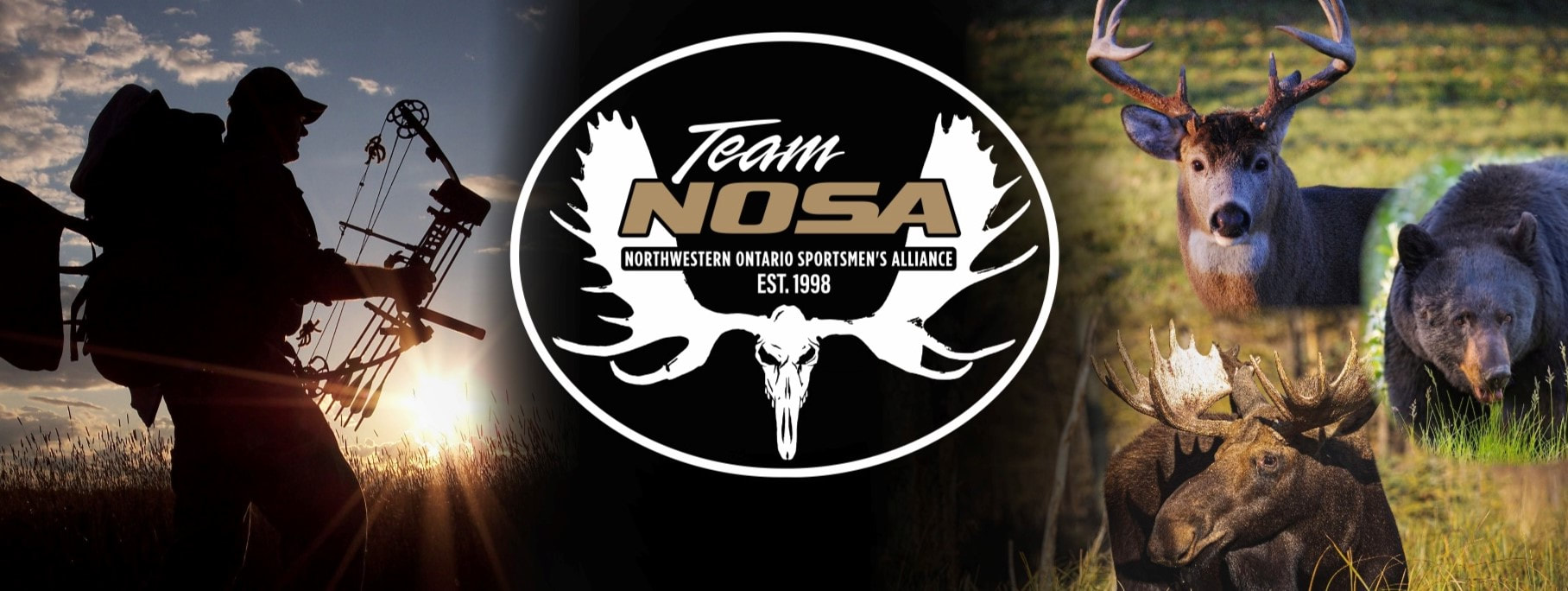
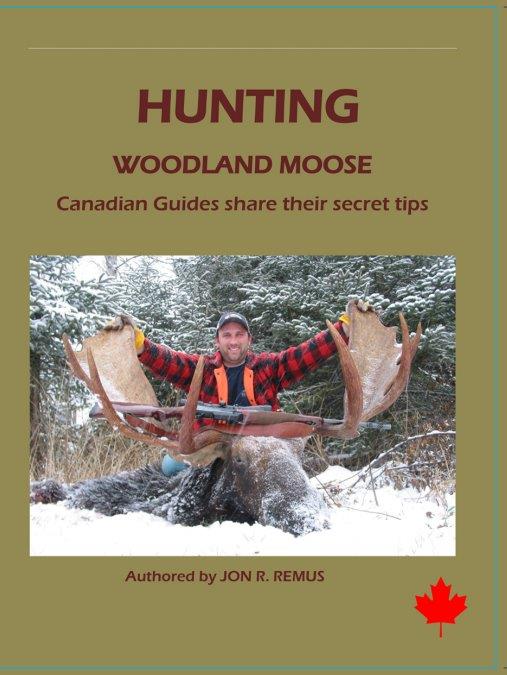
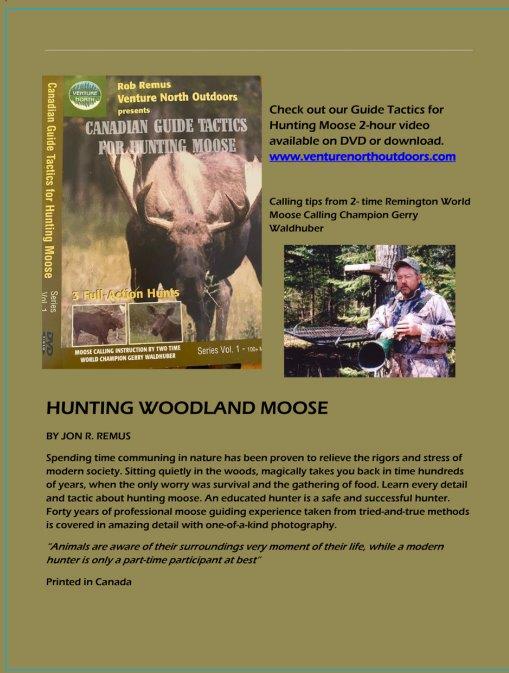
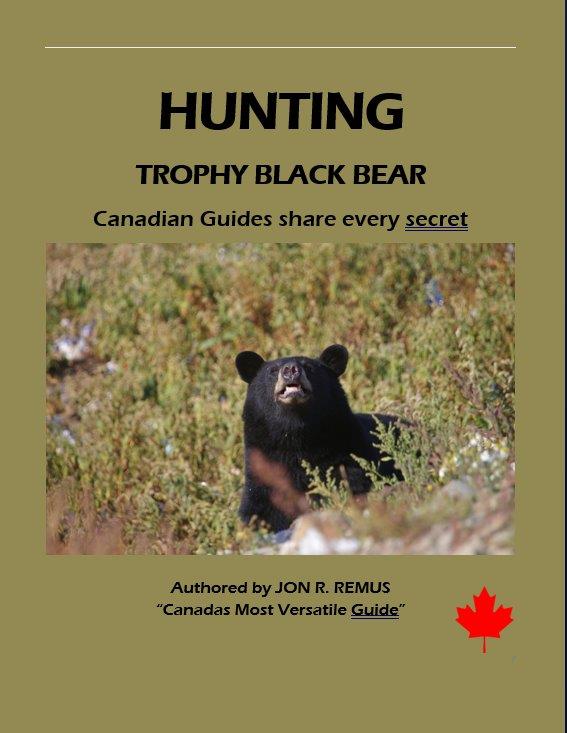
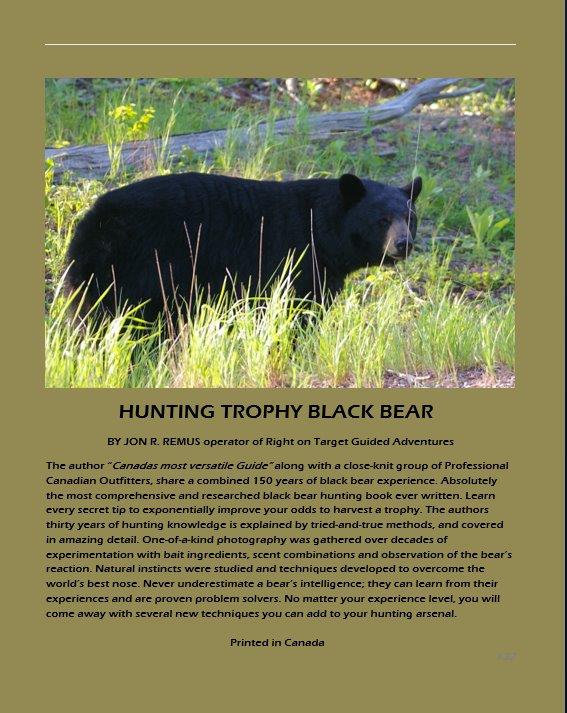
 RSS Feed
RSS Feed